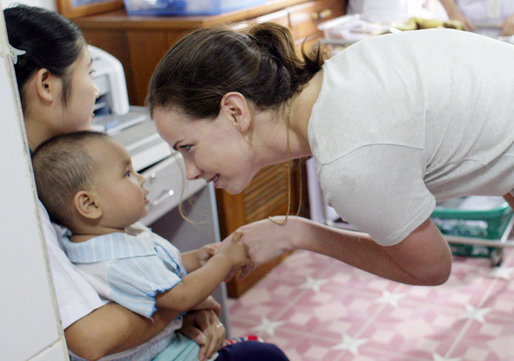Can the Australian Healthcare Community be more effective in its Response to Immigration Detention?
What should the healthcare community do when faced with human rights abuses? Should we expose these violations and advocate for change, using our relatively powerful positions to influence the general public and those in power?
While most would feel a sense of responsibility to do so, how we should go about this and what we should do to be effective in pursuing such change are far harder questions.
These questions have been facing the Australian healthcare community in relation to Australia’s policies of mandatory detention for over two decades. Described as state sanctioned abuse (1) and cruel and degrading (2), these policies have created and perpetuated almost immeasurable misery for tens of thousands of adults and children who have been imprisoned both onshore in Australian and in offshore centres on Nauru and Manus Island (Papua New Guinea). Offshore detention was introduced solely as a deterrent to others seeking asylum in Australia by boat; so the harm created by these policies is both deliberate and completely avoidable.
While clinicians have worked within detention centres for over two decades, the relationship between the Australian government and the broader healthcare community could best be described as antagonistic. The government has consistently dismissed medical advice and calls for reform (3), while attacking critics (4). The fact that these policies are constitutional and have bi-partisan political support has ensured few avenues for legal redress or reform. In response, professional bodies have long voiced their opposition, clinicians have protested, whistle-blown and even engaged in civil disobedience (5). Little has changed however and this has left many to question what more can be done. Over 15 years ago, McNeil (6) recognised that “[r]easoned advocacy may not be sufficient”. Similarly, Berger (7) recognises that “evidence of ill treatment alone is not going to change things and that in this topsy-turvy world it may even make things worse”.
Can the healthcare community be more effective in pursuing social and political change? The answer to this lies at least partially outside of the traditional clinical and ethical repertoire. While there has been over two decades of protest in response to Australia’s policy of immigration detention, rarely have we turned to the literatures that best explain and inform such action (8).
Theories of social change, such as social movement theory deal with the complex and dynamic nature of change, but importantly also recognise that reason, evidence and advocacy alone are often not enough when those in power are resistant to change.
Importantly, such theory also allows us to begin to consider the role clinicians should play in protest, how they support and amplify the protest of others and more generally, how they may apply their skills and status to be most effective in pursuing social and political change.
Such theory shows that effective adversarial action is more complicated than just taking to the streets. Change takes time and progress is often slow and nonlinear.
Returning to Australian immigration detention as an example, amidst increasingly disturbing reports coming from offshore centres, there currently appears to be unprecedented momentum for reform.
Only this month almost 6000 Australian doctors signed an open letter calling for the evacuation of all children from Nauru (9). Major healthcare bodies have made demanded the same (10). Amid this pressure, the Australian government has started evacuating children who are unwell in increasing numbers (11). Public opinion also appears to be shifting, with close to 80% of Australians now supporting the resettlement of the remaining children on Nauru (12).
It has taken over two decades to reach this point. Whether enduring reform occurs however remains to be seen; many children remain offshore, facing unsafe and uncertain futures. More still needs to be done, not just in Australia, but globally. There is a role for clinicians to play here, looking outside of the traditional clinical and ethical literatures for answers and critically reflecting on what can be done to combat such injustices.
References
1. Owler B. Speech to AMA forum on health of asylum seekers 2016 Available from: https://ama.com.au/media/ama-speech-prof-owler-ama-asylum-seeker-health-forum.
2. Mendez JE. Report of the Special Rapporteur on torture and other cruel, inhuman or degrading treatment or punishment. 2015. Available from: http://www.ohchr.org/EN/HRBodies/HRC/RegularSessions/Session28/Documents/A_HRC_28_68_Add.1_en.doc F
3. Kozaki D. Abbott says Australians ‘sick of being lectured to by UN’ after scathing report on asylum policies. Australian Broadcasting Corporation News. 2015. Available from: http://www.abc.net.au/news/2015-03-09/tony-abbott-hits-out-united-nations-asylum-report/6289892
4. Borrello E, Glenday J. Gillian Triggs: Tony Abbott says Government has lost confidence in Human Rights Commission president. Australian Broadcasting Corporation News. 2015. Available from: http://www.abc.net.au/news/2015-02-24/gillian-triggs-says-brandis-wants-her-to-quit-rights-commission/6247520
5. Essex R, Isaacs D. The Ethics of Discharging Asylum Seekers to Harm: A Case From Australia. Journal of Bioethical Inquiry. 2018;15(1):39-44.
6. McNeill PM. Public Health Ethics: Asylum Seekers and the Case for Political Action. Bioethics. 2003;17(5-6):487-503.
7. Berger D. Australia’s torture of asylum seekers. British Medical Journal. 2016;354:i4606
8. Della Porta D. Solidarity Mobilizations in the ‘Refugee Crisis’: Contentious Moves: Springer; 2018.
9. The Guardian Australia. Almost 6,000 doctors sign letter to PM demanding children be taken off Nauru. The Guardian. 2018. Available from: https://www.theguardian.com/australia-news/2018/oct/15/almost-6000-doctors-sign-letter-to-pm-demanding-children-be-taken-off-nauru
10. Murphy, K. AMA president calls for urgent transfer of refugee families from Nauru. The Guardian. 2018. Available from: https://www.theguardian.com/australia-news/2018/sep/20/ama-president-calls-for-urgent-transfer-of-refugee-families-from-nauru
11. Davidson, H. Eleven refugee children transferred from Nauru to Australia in one day. The Guardian. 2018. Available from: https://www.theguardian.com/australia-news/2018/oct/22/australia-spends-480000-more-in-legal-fees-on-nauru-detainee-healthcare-claims
12. Australian Associated Press. Almost 80% of voters support NZ resettlement for children on Nauru, poll shows. The Guardian. 2018. Available from: https://www.theguardian.com/australia-news/2018/oct/28/almost-80-of-voters-support-nz-resettlement-for-children-on-nauru-poll-shows
